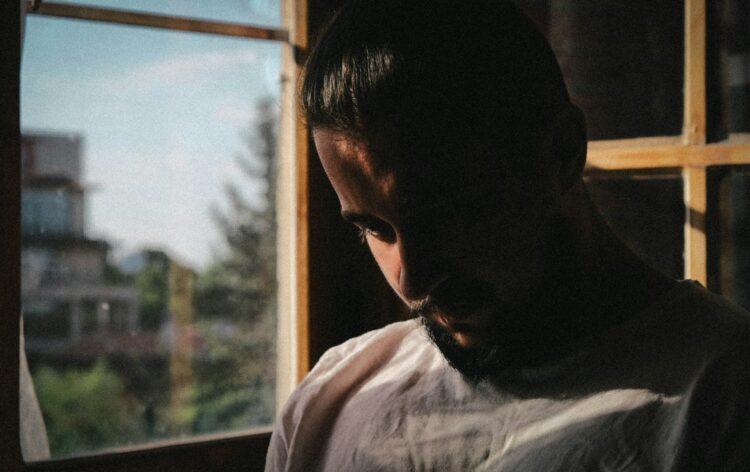
The words parents say don’t always come from a bad place, but they can still leave lasting marks. Adult kids might not fight back like they used to. Instead, they pull away slowly, call less, or stop sharing what’s really going on. Here are 15 phrases parents say that push their adults kids away.
“You’re too sensitive.”

This phrase shuts down emotion in one quick hit. Instead of trying to understand how something made their child feel, a parent writes it off as an overreaction. It doesn’t matter how old the child is—being told their feelings aren’t valid leaves them less likely to share anything next time. It becomes easier to stay silent than risk being made to feel foolish again.
“You’ll understand when you have kids.”

This line might sound like wisdom, but it often feels condescending. It implies that unless someone’s a parent, their opinions or experiences don’t count. For adult children, it sends the message that their life isn’t complete or valid yet. Instead of encouraging empathy, it can stir resentment. It closes the door on honest conversations and replaces it with a silent “you don’t get it.”
“I sacrificed everything for you.”

It may be true that a parent gave up a lot. But bringing it up this way makes love feel like a transaction. When children grow up hearing this, it creates guilt. Instead of feeling supported, they feel like they’re constantly repaying a debt they never asked for.
“Are you really going to wear that?”

This question rarely sounds like curiosity. It lands as judgment. Whether it’s said with a smirk or a raised eyebrow, it picks at insecurities. Adult children want to be seen as capable and independent, and when a parent still critiques their appearance, it makes them feel like they’re 14 again. That’s not a feeling most people willingly return to.
“You never call.”

It’s meant to sound like affection, but it usually comes off as guilt-tripping. Instead of saying “I miss you,” it makes the adult child feel like they’ve failed at being a good son or daughter. Guilt may trigger a phone call or two, but it doesn’t build a real connection. Over time, it just makes those calls feel like an obligation.
“Why aren’t you more like your sibling?”

Nothing creates emotional distance faster than comparison. Even if it’s said casually, it implies one child is winning at life, and the other is falling short. It doesn’t matter how close siblings are. Comments like this stick. They make adult kids question their worth, feel judged at family gatherings, and eventually pull away to avoid the subtle sting.
“I’m just being honest.”

Honesty isn’t always kind. This phrase is often used to justify unsolicited criticism. Maybe it’s about career choices, weight, or relationships. But when feedback is wrapped in “just being honest,” it rarely feels constructive. Adult kids learn to brace themselves before every visit or phone call. That kind of tension doesn’t build strong relationships—it builds emotional walls.
“You think you know everything.”

This one instantly creates a power struggle. Even when adult children come with good intentions or new ideas, this phrase turns it into a challenge. It shuts down dialogue and makes the relationship feel like a parent-child dynamic again, instead of two adults having a conversation. Eventually, the adult child just stops bringing things up.
“I’m your parent, so I know better.”

Respect doesn’t mean agreement. Saying this to an adult child erases their growth and independence in one sweep. It reinforces the idea that no matter how old they get, their voice doesn’t carry equal weight. It may seem like a harmless reminder of who raised whom, but it often leaves the other person feeling small and unseen.
“You always take things the wrong way.”

This phrase deflects responsibility. Instead of acknowledging how words may have hurt, it puts the blame on how the adult child heard them. It becomes less about the impact and more about intent. That subtle shift makes real communication nearly impossible. It teaches the adult child to hold back their reactions and slowly retreat from emotional honesty.
“Don’t tell anyone about this.”

Secrets between parent and child can feel like a bond, but they often become a burden. When a parent says this, it puts their adult child in a difficult spot, especially if it involves other family members. It signals manipulation more than trust. Over time, it makes the relationship feel more complicated than it needs to be, and less safe than it should be.
“That’s not how we raised you.”

This line is often used when adult kids make decisions that go against their upbringing—whether about religion, lifestyle, parenting, or money. But instead of fostering curiosity or openness, it’s used to enforce shame. It puts the child on the defensive and erases any room for growth or change. Most people want to be accepted, not corrected.
“We don’t need to talk about that.”

Silence isn’t always strength. When tough subjects come up, like mental health, trauma, family history, and a parent shuts it down, it sends the message that discomfort is more important than honesty. That kind of avoidance doesn’t make pain go away. It just makes adult children look for support elsewhere, where the hard conversations are allowed to happen.
“You’re overthinking it.”

This phrase might come from a place of wanting to reassure, but it ends up sounding dismissive. Adult kids might be working through something that matters deeply to them. Telling them they’re thinking too much about it turns the problem into a personal flaw. Instead of helping them feel understood, it makes them feel like a burden.
“Well, at least I’m not like other parents.”

This comment is usually meant to highlight a parent’s strengths. But in practice, it’s a way of sidestepping accountability. It minimizes the child’s experience by comparing it to someone who had it worse. Adult kids often walk away not because they want less connection, but because they want the kind that’s built on listening, not defensiveness.

